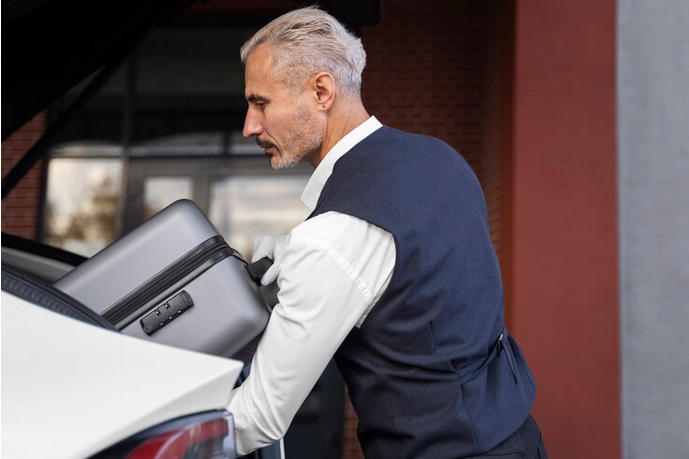Introduction
Manchester, a bustling metropolis in the United Kingdom, is a city renowned for its rich history, thriving culture, and vibrant business scene. As a result, navigating its diverse landscape requires an understanding of the multitude of transportation services in manchester available. In this comprehensive guide, we will delve into the spectrum of transportation options within Manchester, catering to the needs of residents, tourists, and business travelers alike. From public transportation to private alternatives and sustainable modes, we aim to provide a thorough understanding of Manchester's mobility landscape.
Public Transportation
Buses: Manchester's public transportation system primarily revolves around an extensive network of buses operated by various companies. This web-like network connects the city and its suburbs, offering a convenient and economical mode of transportation. Buses are a reliable way to access different neighborhoods and key destinations. With frequent services, straightforward fare structures, and real-time information displays at bus stops, planning your journey is a breeze.
Metrolink: Manchester is served by one of the most advanced tram systems in the UK - Metrolink. It spans across the city and extends into the surrounding towns. This tram network is an efficient and dependable way to navigate Manchester, particularly during peak hours when road congestion can be a hassle. It seamlessly connects to buses and trains, making it a pivotal component of the city's integrated transport system.
Trains: Manchester's significance as a transportation hub is highlighted by its multitude of train stations. Manchester Piccadilly, the largest and busiest, provides access to both regional and long-distance services, making it a critical artery for the city's transportation network. Trains are often the fastest way to reach destinations outside Manchester and are particularly favored by commuters.
Cycling
In recent years, cycling has gained significant popularity in Manchester, fueled by the city's efforts to become more bike-friendly. Dedicated bike lanes and bike-sharing schemes have made cycling an accessible mode of transportation for residents and tourists. Bike rental stations are scattered across the city, making cycling a cost-effective and eco-friendly means of traversing Manchester.
Private Transportation
Taxis: Taxis are an omnipresent and convenient form of transportation within Manchester. They can be hailed on the street or booked in advance. Taxis offer door-to-door service, making them a hassle-free option, particularly when public transportation is less accessible. It is important to be aware that taxi fares may vary based on the time of day, distance, and the specific taxi company. To avoid surprises, inquire about rates in advance.
Ride-Sharing Services: Ride-sharing services, which have become increasingly popular, provide a technology-driven approach to transportation. These services allow users to book rides through mobile apps, guaranteeing convenience and often competitive pricing. Although ride-sharing is efficient and user-friendly, it's crucial to verify the legitimacy of the driver and the vehicle before your journey.
Car Rentals: Car rental services are abundant in Manchester, providing travelers with the freedom of driving themselves. Having a rental car is particularly advantageous for those interested in exploring the city's outskirts or taking day trips to the surrounding countryside. However, navigating central Manchester, which can be congested, and finding parking may pose challenges.
Walking
The city center of Manchester is compact and pedestrian-friendly, facilitating exploration on foot. A multitude of key attractions, shopping districts, and dining establishments are within a short walking distance of each other. Strolling alongside the picturesque canals or through the city's parks is a serene way to enjoy the local atmosphere.
Environmental Initiatives
Manchester is committed to reducing its carbon footprint and promoting eco-friendly modes of transportation. Initiatives range from the introduction of electric buses to the expansion of the cycling network. Travelers can support these efforts by opting for public transportation, cycling, or walking when feasible. Additionally, eco-conscious ride-sharing services offer electric or hybrid vehicles for a sustainable travel option.
Accessibility
Accessibility is a priority in Manchester's transportation infrastructure. Public transportation, including buses and trams, is equipped with facilities for individuals with disabilities. Most train stations are also wheelchair accessible. To ensure a smooth and accommodating journey, travelers with special needs are encouraged to contact transportation providers in advance.
Conclusion
Manchester's transportation services have been meticulously designed to cater to a diverse array of preferences and needs. With an extensive network of buses, trams, and trains, you can efficiently explore the city and its surroundings. For those who favor cycling, the city has established bike-friendly infrastructure, complete with rental stations for a cost-effective and eco-friendly mode of transportation.
Residents and visitors who prefer privacy can choose from an array of options, including taxis, ride-sharing services, and car rentals. Moreover, walking is not only a convenient option but a delightful way to immerse oneself in the local culture.





Comments